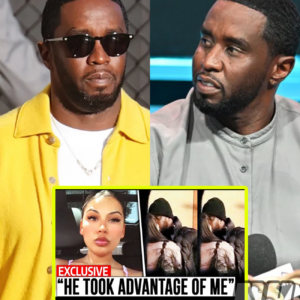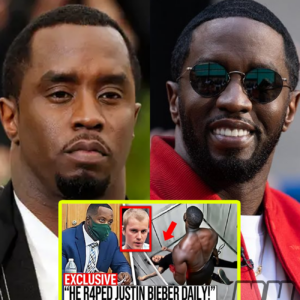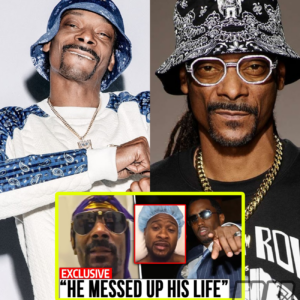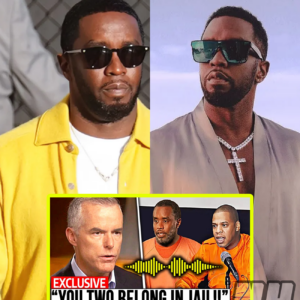### The Complex Relationship Between Suge Knight and P. Diddy: A Deep Dive into Hip-Hop Industry Secrets
The hip-hop industry has always been a hotbed of controversy, power struggles, and secrets. Recent comments by Suge Knight about P. Diddy have reignited discussions about the darker side of the music business, highlighting issues of mentorship, exploitation, and the hidden machinations of the industry’s elite. Knight, a controversial figure himself, offered a stark warning to Diddy, suggesting that the mogul’s life is in danger due to his knowledge of deep industry secrets. This article explores the implications of Knight’s statements and the broader context of these revelations.
#### The Context of Suge Knight’s Warning
Suge Knight, currently incarcerated, has maintained a significant presence in the hip-hop narrative through his outspoken nature and deep industry connections. His recent warning to P. Diddy, born Sean Combs, during a podcast interview raised eyebrows. Knight began by expressing sympathy for Diddy’s family, emphasizing the gravity of legal troubles and their impact on loved ones. He then delved into the heart of his warning: Diddy’s life being in danger because of the secrets he holds about the industry’s inner workings.
#### The Allegations Against P. Diddy
Diddy has faced numerous allegations over the years, ranging from financial misconduct to more personal accusations involving inappropriate behavior. Knight’s comments add another layer, implying that Diddy’s rise and sustained success might have involved unsavory and clandestine activities orchestrated by powerful figures in the industry. According to Knight, Diddy’s deep connections with influential mentors, notably Clive Davis, have shielded him from repercussions that would have felled others.

Knight’s narrative suggests that Diddy was initially a regular individual who became ensnared in the darker aspects of the industry due to his associations with powerful mentors. Knight insinuates that these mentors influenced Diddy’s behavior, perpetuating a cycle of abuse and exploitation within the music business.
#### The Power Dynamics in the Music Industry
Knight’s insights shed light on the broader power dynamics at play in the music industry. He alludes to a ‘secret room’ culture where certain individuals, by participating in clandestine activities, are granted continued success and protection. Conversely, those who resist or are perceived as threats to this established order face severe consequences. This dichotomy is starkly illustrated in Knight’s comparison of his own fate with that of Diddy. Despite building a successful company, Knight alleges that his refusal to conform to certain industry practices led to fraudulent actions against him, resulting in his downfall and imprisonment.
#### The Role of Mentorship and Exploitation
A significant aspect of Knight’s commentary revolves around the role of mentorship in the industry. He criticizes the practice of young, aspiring artists being mentored by established figures who may exploit them. Knight implies that Diddy, having been a mentee to powerful executives, perpetuated this cycle of exploitation with artists under his wing, like Usher and Justin Bieber. This allegation points to a systemic issue within the industry, where the abuse of power and manipulation of young talent is rampant.
#### Diddy’s Alleged FBI Connections
One of the more shocking claims made by Knight is the suggestion that Diddy has been an FBI informant for many years. This allegation, if true, would explain Diddy’s resilience in the face of numerous controversies. Knight posits that this relationship with federal authorities has provided Diddy with a level of protection unavailable to others, allowing him to navigate legal and professional challenges with relative impunity.
#### The Implications for the Hip-Hop Community
Knight’s comments underscore a deep-seated problem within the hip-hop community and the broader music industry. The culture of secrecy, exploitation, and protection of powerful figures at the expense of accountability and justice poses significant ethical and moral questions. It also highlights the precarious position of artists who, while seeking success, may find themselves entangled in harmful dynamics that prioritize profit and power over integrity and wellbeing.
#### Conclusion: A Call for Industry Reform
The revelations and warnings from Suge Knight call for a critical examination of the music industry’s practices. There is an urgent need for transparency, accountability, and the protection of young artists from exploitation. The hip-hop community, known for its resilience and activism, must push for reforms that dismantle harmful power structures and create a more equitable environment for all its members.
As the industry continues to evolve, the voices of those like Suge Knight, despite their own controversies, serve as a reminder of the complexities and challenges that lie beneath the surface of fame and success. The future of hip-hop and the broader music industry depends on addressing these issues head-on, ensuring that the next generation of artists can thrive in an environment that values integrity and respect over secrecy and exploitation.
News
(VIDEO) Celebs that P Diddy EXPLOITED for Cash
P Diddy and the Dark Side of the Entertainment Industry The entertainment industry is no stranger to scandal and controversy, but the recent revelations surrounding P Diddy (Sean Combs) have brought to light a web of disturbing allegations and connections…
(VIDEO) Kevin Hart IN TEARS After New Leaks EXPOSE Him At Diddy’s After Parties!!
Kevin Hart: A Complex Journey Through Fame, Scandal, and Personal Growth Kevin Hart, the renowned comedian and actor, has led a life marked by both incredible professional success and deeply personal scandals. His journey from selling sneakers to becoming one…
(VIDEO) “He Ruined My Life” Former Diddy Employees TEAM UP To EXPOSE Him!
The Dark Side of Fame: Allegations Against Diddy and the Revelations from Former Employees The music industry is often glamorized for its glitz and glamour, but behind the scenes, it can harbor dark secrets and troubling behavior. Recently, Sean “Diddy”…
(VIDEO) “He’s Why Justin Bieber Is DEPRESSED!” Undercover FBI Agent EXPOSES Diddy
The Tumultuous History of Snoop Dogg, P. Diddy, and the East Coast-West Coast Rivalry Hip-hop history is fraught with feuds, friendships, and ever-changing alliances. Central to many of these stories are iconic figures such as Snoop Dogg and P. Diddy…
(VIDEO) “Diddy Did Usher Dirty Forever” Snoop Dogg EXPOSES Sean Combs!
The Tumultuous History of Snoop Dogg, P. Diddy, and the East Coast-West Coast Rivalry Hip-hop history is fraught with feuds, friendships, and ever-changing alliances. Central to many of these stories are iconic figures such as Snoop Dogg and P. Diddy…
(VIDEO) Undercover CIA Agent EXPOSES Diddy & Jay Z!
The Fall of P. Diddy: A Dismantling of Credibility and the Unfolding Legal Crisis Introduction In recent years, Sean “P. Diddy” Combs has found himself at the epicenter of numerous controversies and legal battles that have significantly tarnished his once-polished…
End of content
No more pages to load











